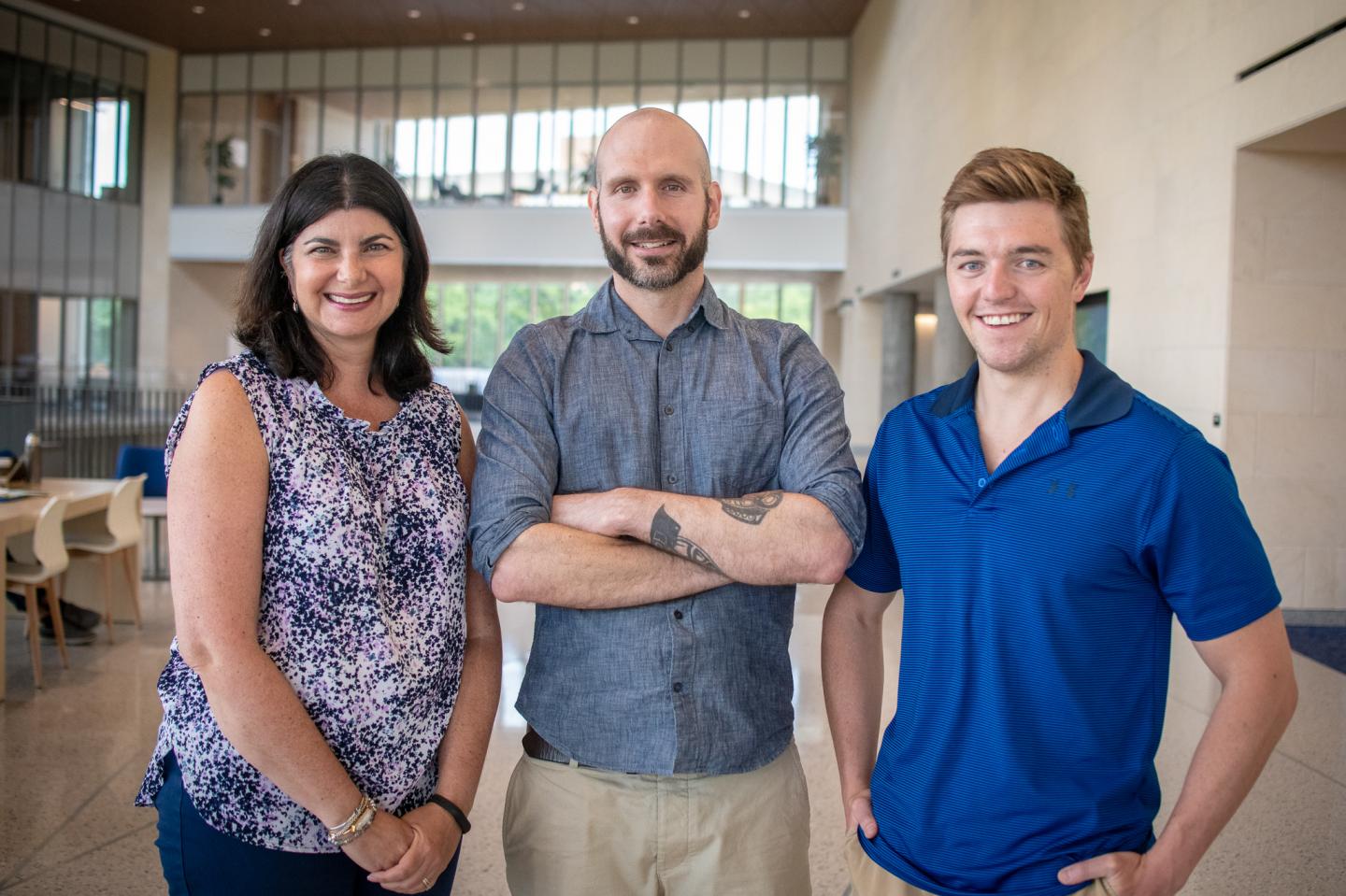
Credit: The University of Texas at Arlington
Three researchers at The University of Texas at Arlington have made a groundbreaking discovery that could enhance the ability of reef-building corals to survive a rapidly warming and disease-filled ocean.
In a newly published paper in Proceedings of the Royal Society, Bradford Dimos, Laura Mydlarz and Mark Pellegrino, all from the Department of Biology in the College of Science, report their identification of a mitochondrial unfolded protein response in an endangered coral species.
The cellular stress response promotes mitochondrial protein homeostasis, free radical detoxification and innate immunity. Its existence in corals was previously unknown.
“We understood that there is a target gene essentially used as a biomarker for diseased and distressed corals, and that gene is induced by the response pathway that my lab studies,” said Pellegrino, assistant professor of biology.
Pellegrino, who had never previously studied coral, is an expert in mitochondria and cell biology. In discussions with Mydlarz, whose portfolio is focused on coral immunity, the two hypothesized that investigating the mitochondrial unfolded protein response in coral could have relevance in protecting the coral reefs. They were right.
“This is a true collaboration bringing together the tools in Mark’s lab with the data available in my lab,” said Mydlarz, professor of biology. “But it wasn’t until Brad joined my lab, with his experience in studying mitochondria, and took this on as his project that we were able to investigate.”
Dimos, a second-year graduate student in Mydlarz’s lab and first author on the paper, said the gene they discovered acts as a “master regulator” that unlocks hundreds of other genes.
“There has been a lot of well-done work in the past that has identified various genes that could be important for immunity in coral, but our gene potentially regulates a lot of those,” Dimos said. “We’ve uncovered a single target that has a broad scope of impact. This is a huge step forward in making any interventions to preserve coral more efficiently.”
The team plans to move forward with testing the genetic pathway in a model organism to determine if the newly discovered gene can protect against the heat stress and infection that corals face in the ocean, Pellegrino said.
“A lot of these genes in this pathway are involved in protecting the mitochondria,” Pellegrino said. “In addition to protecting against heat stress, this stress response pathway could also possibly protect against infection owing to its role in regulating innate immunity.”
Coral reefs not only create vibrant underwater landscapes, but they support 25% of all marine species on the planet. But they have recently experienced massive declines driven by disease and thermally induced mass coral bleaching in the face of increased environmental disturbances.
“Corals build the reef and are the base of the ecosystem,” Mydlarz said. “Without live coral, the reef doesn’t have the structure it needs to support the life that relies on it. It’s ecologically important, but also has great socioeconomic significance. Understanding the existence of this gene means that there is now the potential to identify if corals are experiencing stress before they appear dead or bleached.”
Dimos said the ability to predict coral survival will help scientists and conservationists allocate resources and determine which species to prioritize as the environment increasingly becomes more unstable.
Clay Clark, chair of the Department of Biology, said the work of Dimos, Mydlarz and Pellegrino is making significant contributions to UTA’s commitment to address critical issues related to the global environment.
“It is exciting to see two labs combine their strengths and resources to tackle a major issue with numerous critical implications,” Clark said. “Bradford, Laura and Mark are showcasing the power of research as they move swiftly and thoroughly in response to a rapidly growing issue. I look forward to how this breakthrough will lead them to protect these vital organisms to secure invaluable biodiversity.”
###
Media Contact
Dana Jennings
[email protected]
Original Source
https:/
Related Journal Article
http://dx.




